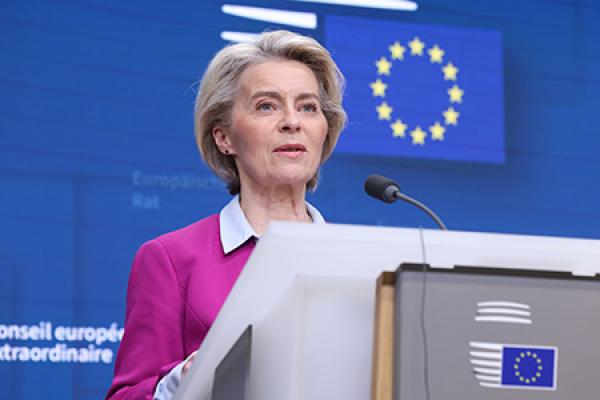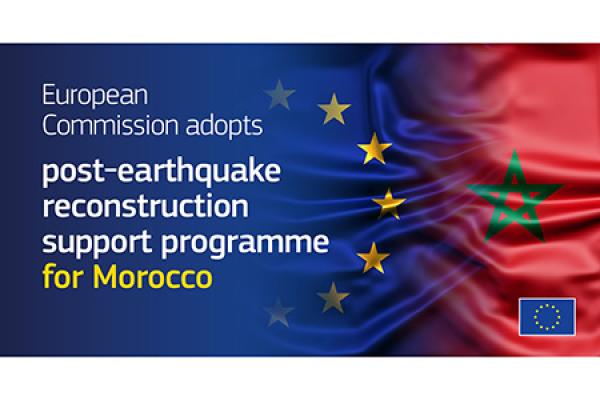Latest News

Today is a very special day. The European Council re-confirmed Europe's unwavering commitment to stand with Ukraine. We all know that Ukraine is fighting for us. So we will support them with the necessary funding and provide them with the much-needed predictability they deserve.

The European Commission has adopted budget-support assistance amounting to EUR 177 million for the Kingdom of Morocco as backing for the ‘Integrated Programme for the reconstruction and comprehensive upgrade of the disaster areas (2024-2028)', which was drawn up by the Moroccan authorities following
- NDICI-GEO-NEAR/2022/ACT-61199 - Annex 1 - Appui à la transition énergétique au Maroc- Energie verte
- NDICI-GEO-NEAR/2022/ACT-60800 - Annex 2 - Programme d’appui aux industries culturelles et créatives au Maroc
- NDICI-GEO-NEAR/2022/ACT-61027 - Annex 3 - Programme d’Appui à l’Enseignement Supérieur, la Recherche et l’Innovation et à la mobilité
- NDICI-GEO-NEAR/2022/ACT-61201 - Annex 4 - Programme d’appui à la réforme de la justice - Phase II
- NDICI-GEO-NEAR/2022/ACT-61040 - Annex 5 - Facilité de Coopération Technique (FCT) - Maroc
C(2022) 7308 - COMMISSION IMPLEMENTING DECISION of 17.10.2022 on the EU-Morocco Green Partnership
ENI 2014/C(2015)7347/Morocco/2014 Annual Action Programme/Modification
- ENI 2014/037373/Morocco/Health Sector Reform "Sante II"
- ENI 2014/037371/Morocco/Justice Sector Reform
ENI 2015/C(2015)6983/Annual Action programme for Morocco 2015 and 2016 (Part 1)
ENI 2014/C(2014)7204/Annual Action Programme for Morocco
- ENI 2014/037373/Morocco/Health Sector Reform "Sante II"
- ENI/2014/037371/Morocco/Justice Sector Reform
ENI 2014/C(2014)9862/Decision on the vocational training institutes in the field of renewable energy and energy efficiency and Noor III solar plant


